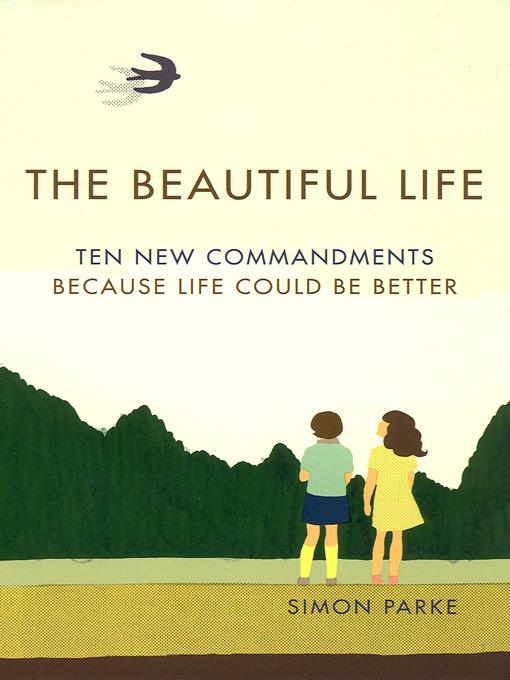The idea for the book came to Simon Parke whilst on a train from Edinburgh to London. He had been leading a weekend on the Old Testament's Ten Commandments, and felt uneasy. What had struck him, was the fact that while the commandments demand that we be good, they don't tell us how to be good. 'They tell us what to do,' says Parke, 'but not how to be – and how to be is the more important of the two, as all our doing arises from our being. Much psychological discomfort stems from the unbridged chasm between the two.'
So 'The Beautiful Life – Ten new commandments because life could be better' is a book about being, rather than doing, and seeks the lost or forgotten human power of extracting the pure energy of the soul from the experiences of daily life.
The Ten new commandments presented are:
1. Be present
2. Observe yourself
3. Be nothing
4. Flee attachment
5. Transcend suffering
6. Drop your illusions
7. Prepare for truth
8. Cease separation
9. Know your soul
10. Fear nothing
The idea for the book came to Simon Parke whilst on a train from Edinburgh to London. He had been leading a weekend on the Old Testament's Ten Commandments, and felt uneasy. What had struck him, was the fact that while the commandments demand that we be good, they don't tell us how to be good. 'They tell us what to do,' says Parke, 'but not how to be – and how to be is the more important of the two, as all our doing arises from our being. Much psychological discomfort stems from the unbridged chasm between the two.'
So 'The Beautiful Life – Ten new commandments because life could be better' is a book about being, rather than doing, and seeks the lost or forgotten human power of extracting the pure energy of the soul from the experiences of daily life.
The Ten new commandments presented are:
1. Be present
2. Observe yourself
3. Be nothing
4. Flee attachment
5. Transcend suffering
6. Drop your illusions
7. Prepare for truth
8. Cease separation
9. Know your soul
10. Fear nothing
It is tough-mindedly mystical, in its commitment to our twin realities of compulsive behaviour and original and recoverable beauty. Simon Parke was a priest in the Church of England for twenty years, but holds back from too much talk of God. 'God has become a difficult word through misuse,' he says. 'Too often, those who use it cannot accurately describe themselves, let alone an infinite other. Like chimney sweeps handling clean linen, they soil what they touch. It is best first that we notice ourselves.'
It's interesting to read what Stephen Poole wrote in the Guardian: 'As against the mimsily positive self-congratulation of the personal development industry, Parke offers a rugged, spiky path of challenge and ridicule for what you might presently hold dear, expressed in a sympathetic, lucid style that mixes humane anecdote with deft borrowings from Buddhism and the Stoics. Throw away the 'mask' of your personality, live in the present, observe yourself, and – as the martial artists say – 'empty your cup'. Easy when it's a cup of coffee; more difficult when it's the cup of you.'


دیدگاه کاربران